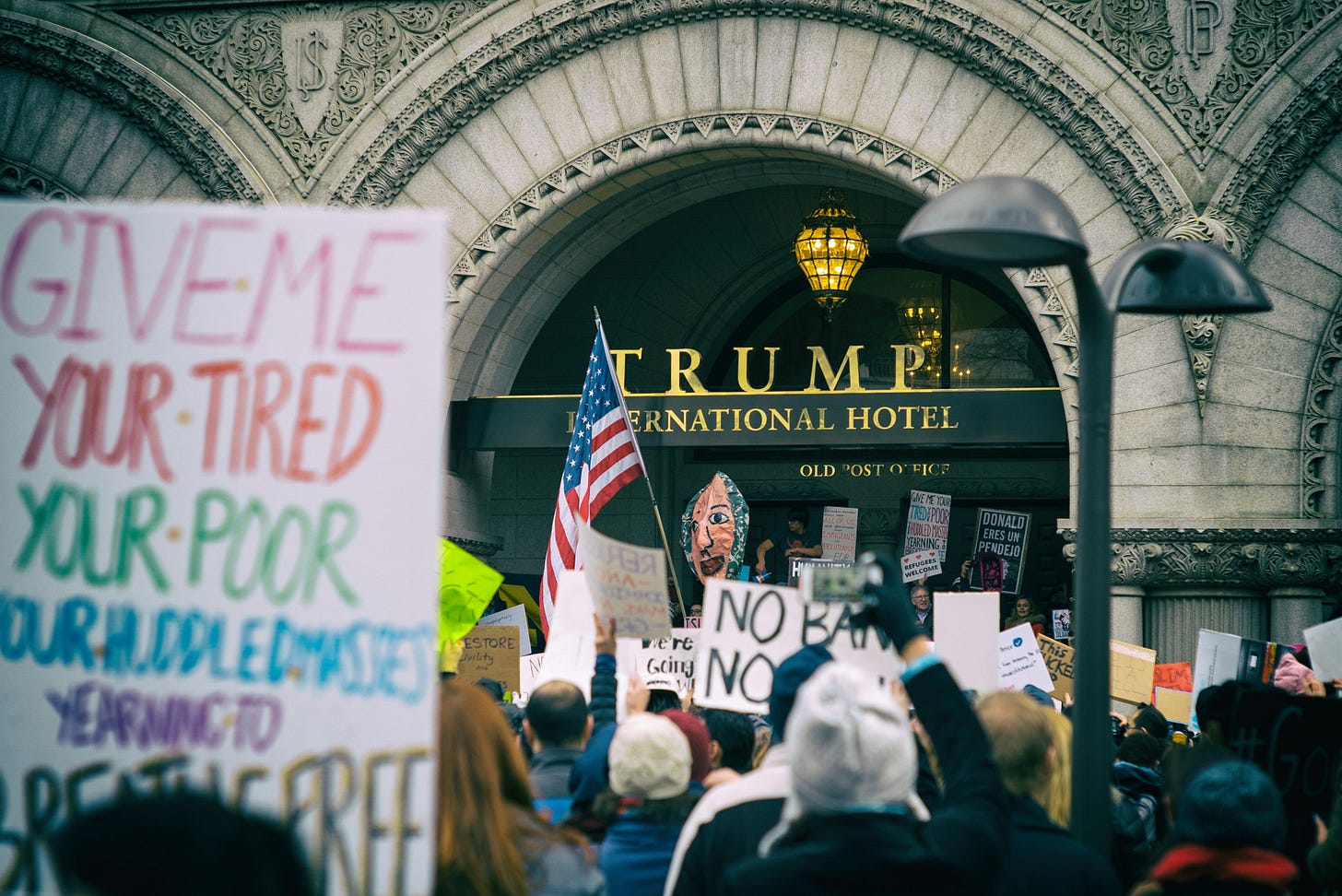As we get closer and closer to election day, I’ve been doing a balancing act between reading news articles, critiques, and election polls and tuning out any election coverage with the hopes of waking up on November 6 to the news that US democracy can hope to remain intact for the next four years. I know that tuning out the news is a privilege that many do not have. As a naturalized US citizen with job stability, I am more or less protected from what a second Trump presidency could bring. However, I’m frightened by what four years of Trump would mean for undocumented immigrants, asylum seekers, and refugees in the US. As reported in the New York Times, Trump’s immigration agenda incorporates mass deportations, raids, and detention camps, and echoes some of the most shameful moments in US history, including Japanese internment during WW2, Mexican repatriation during the Great Depression, and the Eisenhower-led mass deportations of Mexicans and Mexican-Americans of the 1950s.

My book Dreamer Nation: Immigration, Activism, and Neoliberalism analyzes the activist rhetorics of Dreamers in the Obama era and argues that we have a lot to learn about the activist rhetorics of this population if we are ever to counter draconian anti-immigrant policies and politics. While immigrants have a strong history of resistance to state-sanctioned oppression, they will need dedicated allies who refuse Trump’s politics of exclusion. And while the situation may not be so dire for immigrants and asylum seekers if Kamala Harris wins the presidency, the anti-immigrant sentiment that is so prevalent in this country should still give us pause. We will need to pay attention to the immigration rhetorics, policies, and practices of our government and to advocate for dignity and humanity for those who come to our borders seeking a better life.
Article
by Victoria Houser and Eda Özyeşilpınar
“The constellation of stories we share offers a path for embodiment through solidarity with those who endured and are enduring religious-based gender violence. There is no such thing as an easy intervention in religious structures that perpetuate gendered violence. Even so, there are possibilities for us to find our way back into the body, and in sharing our stories here we offer others the opportunity to do the same.”
Conversation
Teach and Write for Justice: Intergenerational Networks, Equity, and Community in the CCCC Caucuses
by Ersula Ore, Christina Cedillo, Rachel Jackson, and Kimberly Wieser. Moderated by Ana Milena Ribero
“This work is exhausting. Without the caucuses, it would also be lonely, and there’s just no way I’m signing up to live like that. I have spent far too much of my life in the academy on academic work, and it’s really not a great way to live. Find your people. Make time for you. Make time for your family and friends. Take care of what feeds you. Academia only does part of that.”
Book Review
Creating Home through Narrative: A Review of V. Jo Hsu’s Constellating Home: Trans and Queer Asian American Rhetorics
By Megan Simmermeyer
“In their book, Hsu examines three distinct, yet interconnected projects that center around stories: the Dragon Fruit Project, the Visibility Project, and the Queer Ancestors Project…Across these chapters, Hsu focuses on themes of love, resilience, and ancestry.”
From the Vault
I recommend the article “Countering Racial Enthymemes: What We Can Learn About Race from Donald J. Trump” by Danny Rodriguez, in which the author examines Trump’s racist rhetoric to demonstrate how racial enthymemes work to embolden white supremacy. Rodriguez argues for scholars of race to claim a clear definition of race in order to counter Trump’s ambiguous enthymematic rhetoric. Rodriguez contends that “the lack of a foundational definition for race has made Trump’s demagoguery powerful and unchecked.”
This article is a must read as we again confront the effects of Trump’s racist rhetoric on our nation.
Countering Racial Enthymemes: What We Can Learn About Race from Donald J. Trump
By Danny Rodriguez
“Trump denying that he is racist constructs an implied premise that (un)intentionally authorizes a white supremacist attitude: as long as a person is not the most racist person, a moderately or even severely racist person can overlook his or her own racial unawareness.”
Production Credits for Post
Written by Ana Milena Ribero
Edited by Alexandra Hidalgo
Posted by Evelynn Pugh











Thank you to constellations' fantastic book review editor Ana Milena Ribero for writing this urgent post about why those of us who legally can really need to vote on this election. Also, her book is fantastic! I recommend it to everyone!